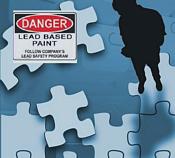What to do if EPA Sends You a Request for Information
Recently I found an article written by Anne E. Viner, a principle attorney at the Chicago law firm of Much Shelist, P.C. In her article Anne offers several practical tips for responding to governmental requests for information. I thought her article was well written, straight forward and easy for a contractor to understand. I got her permission to share some highlights here on RRPedia.
 Anne points out that EPA Administrator Lisa was quoted to say “EPA is back on the job" and that EPA has received the largest enforcement budget in its history, making it more likely that your business will be subject to some type of investigation.
Anne points out that EPA Administrator Lisa was quoted to say “EPA is back on the job" and that EPA has received the largest enforcement budget in its history, making it more likely that your business will be subject to some type of investigation.
Below are some practical tips from Anne to keep in mind when your business receives a request for information from any government agency, not just from EPA regarding the RRP Rule. (I have summarized quite a bit, click here to see her full article.) This information should not be construed as legal advice or a legal opinion on any specific facts or circumstances.
-
Don’t respond to verbal requests: It is important to get all requests in writing, so that all parties clearly understand the scope of the information sought and the time period covered by the request. Without a written request, you risk being accused of failing to fully comply with a verbal request that you may have simply misunderstood. Asking the government to put its inquiry in writing is within your rights.
-
Determine if the government has authority to seek the information requested:
 Although a written request for information should specify the statutory authority for the request, don't assume that the agency actually has the cited authority. Knowing the source of the government's authority for the request, as well as determining the applicability of the request to your business, is imperative in both limiting the scope of your response and protecting your business interests with customers and other parties that may be affected by the request.
Although a written request for information should specify the statutory authority for the request, don't assume that the agency actually has the cited authority. Knowing the source of the government's authority for the request, as well as determining the applicability of the request to your business, is imperative in both limiting the scope of your response and protecting your business interests with customers and other parties that may be affected by the request. -
Voluntary compliance versus litigation: Your business should be aware of the pros and cons of voluntary compliance versus requiring the government to follow more formal procedures such as issuing a subpoena or filing a lawsuit. Generally, cooperation is the better course at the early stages of an investigation. On the flip side, refusing to voluntarily comply with a governmental request may subject you to higher scrutiny and or administrative penalties. Of course, cooperation is not always an option, so understanding the risks of fighting with the government is essential at the outset.
-
Assume your company is a target and involve counsel early in the process: Regardless of the apparent target of the government's inquiry, assume that your business is, in fact, under investigation and may be subject to fines, penalties or otherwise embroiled in a civil or criminal enforcement action. An experienced environmental attorney can help advise your business concerning its rights and responsibilities.
-
Be honest: As we all learned in childhood, honesty is the best policy. Handling the request in an inappropriate manner could result in claims of obstruction of justice, interfering with investigations, or other types of administrative and civil violations.

 Looking for accurate information about the EPA RRP rule?
Looking for accurate information about the EPA RRP rule? 


